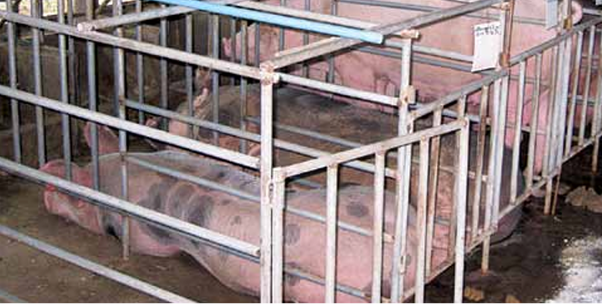
Sanitation and animal health protection

• The most common daily measures to prevent disease are through organized, clean, and hygienic farming.
• This means that pig manure must be cleaned out of the cage every day.
• If have ability, should build bio-gas, using gas for cooking, electricity for heating pigs and lighting at night, etc. and the waste from the oven can used as a good natural fertilizer for vegetables, crops, and other plants.
• Regular, cleaning of pig cage reduce the risk of disease outbreaks.
• Always clean with a disinfectant (such as Hormades, TH4, Iodavic, Bioclean) on all farrowing cages and piglet nursery cage before stocking new sows or piglets.
• Unless necessary, do not allow others to visit your farm or pig cages, especially during times of disease, as this spread the disease to pigs.
• Conversely, if others are allowed to visit, we must ask to shower and change into farm-provided or properly disinfected clothing.
• After visiting pig cage, do not wear these clothes to visit other pigs farm, as clothes and shoes can carry infectious diseases.
• Visitors must disinfect their shoes by dipping their feet in disinfectant before entering the pig pen.
• Visitors should not enter the farrowing pen because the sow has injuries from reproductive organs, and the young piglets are very susceptible to disease.
• Disinfection and good sanitation reduce the spread of infectious diseases. Organizing pigs by weight, sows, farrowing pigs, and piglets is also a way to reduce outbreaks and the spread of disease (transmission from older pigs to younger pigs).
• If necessary, separate the smallest or weakest piglets from the larger, stronger piglets. This practice prevents the weaker piglets from becoming weaker when not getting enough feed.

Figure: Apply lime to kill germs in the cages